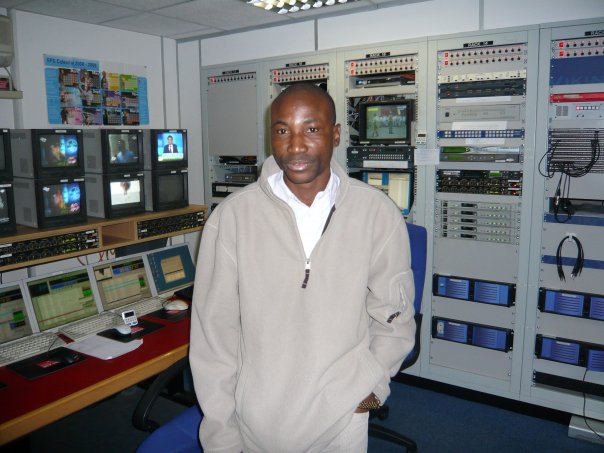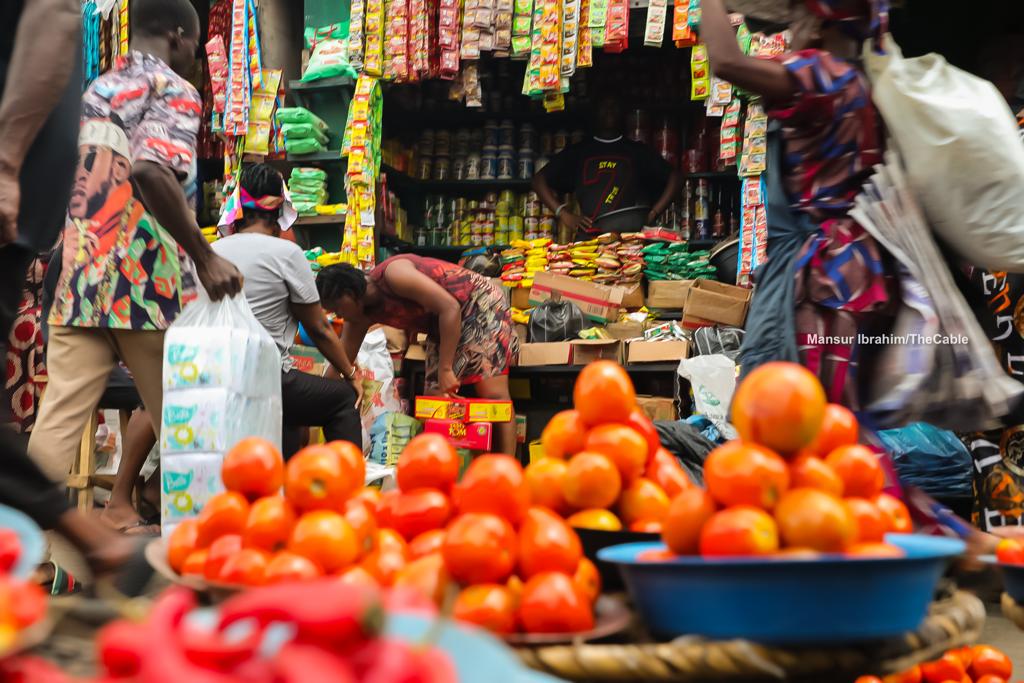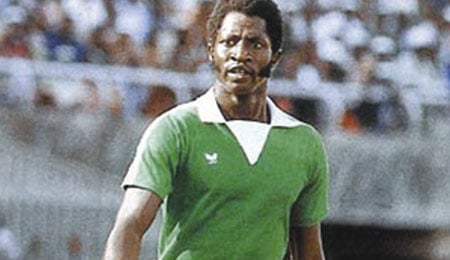I am not privy to what Chief Femi Gbajabiamiala, your savvy Chief of Staff, is telling you. There is hunger in the land. Messages have been sent to Aso Rock through the back door. So bad are things now that a new non-political front is emerging in which twelve of us have decided to seek a private conversation with you. When, I don’t know. The outcome, I don’t know. Enough of fake promises. Enough of “we are laying the foundation of a better tomorrow.” If people die today, there is no tomorrow for them. The terrible idea in Nigeria is to assume that everyone is looking for something when offering advice. No! Many want their country to succeed. Some even now begin to panic that the Tinubu presidency will discredit the entire Yoruba race.
I have written several times about the conditions of Nigerians and how the situation has not been turning around favorably. However, one must not see a reiteration of the ordeals of the society as mere tautologies because the problems would constantly be a fog to the future. Nigeria is a complex society and blessed with many resources, including resilient citizens who have shown commitment to hard work but have not been getting the proportional worth of their efforts. Every year, the version of suffering they face differs, and it seems that there are some temporal distinctions in the motivations of those ordeals. There is a systematic downfall in the economy, and those at the receiving end of its manifestation are the masses.
Well, some may say that it is too early to judge the government of Tinubu, but when starvation becomes a point of reference, we might just make an exception for that rule. A government is a failure if it has not been able to fulfil its primary duties and its published agenda. However, a government is useless if its people suffer endlessly from starvation. While it might be too early to judge the former, it is quite sure that he is failing terribly at the latter.
Recently, the video of a man who was caught in agony and lamentation attracted my attention. He was in the market to buy a “Congo” of rice but was told that it now costs 2,500 naira. The man started crying, lamenting the harsh condition and confused as to what he and his family would eat. He had just 1,800 naira with him, and God knows how much effort he had to put together to get that amount. Some of us tried to locate the man to give him some money.
Advertisement
Bodija market in Ibadan, Oyo State, has a reputation for cheap consumable commodities, and the cost of food products there is considered slightly reasonable. However, this reputation is no longer possible as basic commodities now cost even more than they could be imagined. What is more annoying is that the prices are not stable, and the progression of the increase has been concerning. A lady lamented having bought her usual loaf of bread for 800 naira 3 weeks ago, and within that period, it had skyrocketed from N100 to N1,200 and now at N1,500 for a loaf that is as light as a foam. Let me confirm to you that I visited the place in January to check the data. Thus, let no appointee of yours deceive you that things are being exaggerated.
Inflation in Nigeria hit 27.3 percent in November of 2023. The price increase was expected, but it seems that the progression of price increases for food items is at a higher rate than the supposed inflation. A recent report by the National Bureau of Statistics puts the inflation rate on food and consumables at 33%, but I am still convinced that the rates could have been underestimated. Several factors and reports have pointed to these unfortunate developments in the previous years. In October 2023, the Food and Agricultural Organisation predicted that about 5 million Nigerians would be afflicted by hunger by 2024. Well, we probably thought that 5 million is a small percentage of our population of more than 200 million, but it seems that that prediction was not accurate as the effect of food inflation must have put more people at risk. Another stat by the World Food Programme states that 26.5 million Nigerians will be subjected to acute hunger before the end of the year. The United Nations’ Africa Regional Overview of Food Security and Nutrition noted that about 78 percent of Africans would not be able to afford nutritional or healthy food. There was also a prediction that States like Adamawa, Borno, Sokoto, Zamfara, Katsina, Kaduna, Sokoto, and Yobe would face more problems with food security in 2024.
President Tinubu, Garri has always been the best friend of the poor. It had always been one of the most affordable foodstuffs for even Nigerians who live below average. You could eat it the way you want. People experiencing poverty could leave some in water for a long while so that it would soak enough to share among everyone. They take some in the morning and come home to the rest in the evening. It is the hope of students when the end of semesters is close, and they have spent all their money running through the weeks. You could eat or drink it the way it is, add some sugar if you can afford it, or spray a bit of salt to just change the taste from the one you ate in the morning. You see, the present predicament of the people never got real until I realized that a “Congo” of Garri now costs between 700 naira to 1,200 naira, depending on the place you are buying from and the type you have bought. This leaves me to wonder: what will the poor eat?
Beans are another food that has been saving people experiencing poverty. Although it takes longer to cook, it seems to last a while, especially when you combine it with Garri and mix it like you are mixing cement and sand. Students, especially in public universities, have the habit of making sure that aside from Garri, there are always grains of beans in their packs. They could cook beans with plenty of water to make it last. This is a similar habit of the poor. Unfortunately, the cost of a “congo” of beans has risen to between 1,500 naira and 2,200 naira, depending on the location and type. Sir, please send your driver to check the prices.
Advertisement
It is not only the price of the common food that has risen; it is the same case for other staple foods. Today, a sachet of water costs around N50, and you barely see a bag of it at anything less than N300. This leaves the people to drink unclean well water or find their drinking water through other sources. I do not attempt to overstate the condition, but this is the reality on the streets, and it is hard to see any food item that has not skyrocketed in price by at least a 30% rate.
The economy is imploding and affecting the livelihood of individuals. One may ask for reasons behind the continuous increase in these items. It is not rocket science to list out several of the reasons. To mention but a few, the cost of transportation and distribution of food items from across the country has become very difficult. First, the excessive price of petrol within the range of N590 to N660 across the nation has an impact on the final prices. In addition, the roads have become outrageously insecure, with different stories of kidnapping, highway attacks, terrorism, and other vices. These have jointly jacked up the calculative cost of production, and the masses are paying heavily for it.
In addition, the above reasons affect business, and most importantly, the incessant supply of power has become another foundational cause of the hike in prices. Today, many small and medium-scale businesses do not have access to a stable power supply, and in some cases, the tariffs have been so outrageous that the proportion of them and the profits per product are discouraging. They, therefore, resort to generating their power, which causes another extra cost. The result is that the products keep increasing in price as the costs skyrocket. Another factor is the decline of the value of naira to dollars. The dollar is the major currency for international trade, and many of the household items in the country are imported. This means that the prices of those commodities in Nigeria are expected to increase with the value of dollars, causing difficulties for the citizens. So, when a market woman insults you for negotiating lower prices for her wares, it is not because she is merely disrespectful but because she believes you are ignorant of the costs of putting her products on the market.
I keep wondering, if things are this extremely expensive, what will the poor eat? What would 30,000 naira minimum wage do in the current economy? How many would start dropping dead on the roads? How long would Nigerians trek because they could not afford the fare? How many would commit suicide? What will the poor eat? There is almost no average-class individual in the country as the condition affects every social stratification.
Advertisement
One of the very steps to take in ensuring that the prices of things are favorable, at least food products, is to ensure that there is an increase in local production of food items compared to the rate of importation. As of November 2023, Nigeria imports, officially, about 2.1 million metric tons of rice yearly, making it the top buyer of rice globally. You could wonder that if Nigeria is said to have fertile land for farming and farmers ready to farm, why does the nation need to import that much, considering the decline in the value of naira globally? Nigeria produces about 8.4 million tons of local rice, but it is still not sufficient for consumption in the country. The Buhari administration created policies that would discourage the importation of rice and some other products in Nigeria in a bid to encourage local production. Unfortunately, this development made the price of local rice increase by 200 percent. Currently, the prices of local and foreign rice are not too far from each other. This is because the price gap that would have been made necessary has been reduced by other local and internal issues militating against local productions. It means that the government must make efforts to first increase the productivity of local items as well as ensure that there is an unhindered channel of distribution of the same across the country.
It is important to also note that the nation has not been putting much focus on the role of state governments and other political leaders aside from the federal government. Agricultural schemes and strategies are not the sole work of the Federal Government, as eradication of poverty should be the watchword of every reasonable government. State-wide agricultural strategies and blueprints that would reduce the propensity of hunger and starvation in each state are important. Understandably, many state governments make efforts to build infrastructure that would be legacies for many years; however, when states make efforts to reach self-sustainability in the production of agricultural products, it would reduce the cost of transportation and boost the local economy. Poverty cannot be eradicated without collaborative efforts between the Federal Government and the State Governments.
When actions are not taken, and attention is not directed to starvation in the country, the country must be ready for the negative repercussions of the same. It is only logical that hungry people become desperate and desperate people become prone to committing crimes. This is partly the logic behind the proliferation of crimes in Nigeria and the rate of kidnapping in the past few months. Recently, the kidnappers have been asking for food items alongside the ransoms demanded. The adopters of the December 28, 2023, Abuja kidnapping victims requested “bags of rice, packs of Indomie, cough syrups, antibiotics, bedsheets, and cardigans” alongside 290 million naira. A similar incident happened in September 2023. Other manifestations of this hardship are seen in an increase in armed robbery and other social vices. When a man is seen stealing a cup of rice, it would be illogical to arrest or punish the person; it is only hunger that would have made a person do such.
Hunger is in the land, and it is affecting the masses; everyone must act. Where you have abundance, ensure you help others, and when you need, ensure you ask reasonably. If the rich or those who are comfortable do not help, they will all end up being victims of the consequences. The danger of starvation knocks, and it has everyone’s addresses. Nigerians are starving.
President Tinubu, wake up!
Advertisement
Views expressed by contributors are strictly personal and not of TheCable.
Add a comment







